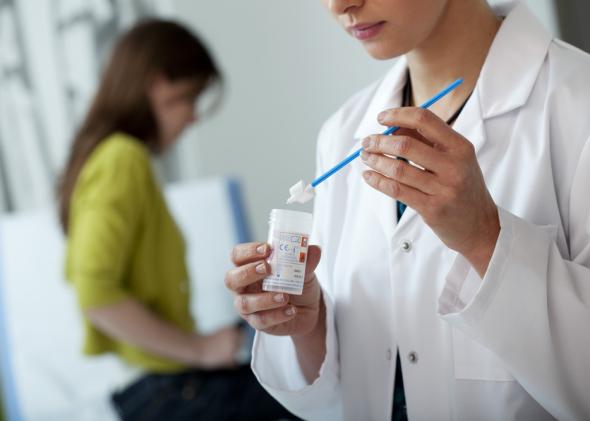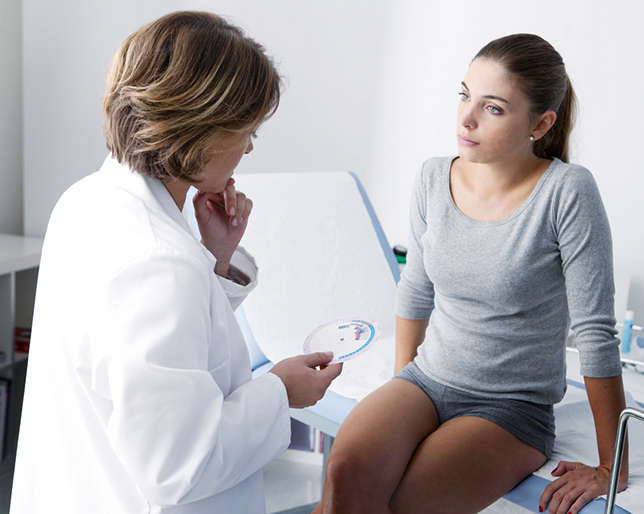A Pap test, also known as Pap smear is a screening procedure that determines the presence of abnormal cell changes on the cervix.
During the test, a healthcare professional will scrape a tiny portion of cells on the cervix. These cells will be studied under a microscope to detect cervical cancer or dysplasia.
Some women might be required to have a regular Pap test while others don’t need to. This will usually depend on certain factors like age.
Studies have shown that a high-risk type of human papillomavirus or HPV is causing the development of cervical cancer.
Nowadays, it is highly recommended that women who are 30 years old and above should undergo HPV test and Pap smear.
Women under 26 years of age on the other hand are advised to get an HPV vaccine to protect themselves against certain types of HPV that can potentially cause cervical cancer.
When the proliferation of abnormal cells is detected early, the risk of developing the disease will be greatly minimized.

Preparation
Here are a few things to remember before heading to your doctor’s clinic:
- Avoid having a Pap test when you have your menstrual period. Blood can alter the results of the test.
- Avoid having sexual intercourse for 24 hours.
- Prior to the test, avoid using tampons, sprays, or douches for at least 24 hours.
Aside from your monthly period and using tampons, other factors that alter the result of a Pap smear include the presence of vaginal infections and the inability to collect a significant amount of cells from the cervix.
Generally, your doctor would want to know a few things before performing the test. This includes:
- Whether you are pregnant or not
- If you are taking contraceptive pills
- Information about your menstrual period (when was the first day and how many days it lasted)
- If you have been suffering from any reproductive infections such as abnormal vaginal discharge, itching, or swelling.
A Pap test doesn’t require any special preparations. However, if you want to avoid any discomfort during the exam, then you might want to empty your bladder first and foremost.
If you have had an abnormal result in the past, it would be ideal to notify your doctor about it. This way, the doctor would be able to identify the best course of action to take.
How it’s done
This procedure might be a little awkward for some, especially for first timers.
During the test, you will be asked to take off your pants and lie on your back with both feet elevated by footrests.
In this position, your doctor will be able to easily examine your vagina and cervix.
A speculum will then be inserted into the vagina to widen the vaginal walls. Your doctor will get a few samples of cells from your cervix with the use of a cotton swab or small spatula.
How it feels
You might be a little tense especially with a foreign object being inserted into your vaginal canal.
You can ease the discomfort by not trying to hold in your breath. Just relax and take a few deep breaths.
If you want, engage in a light conversation with the doctor to help minimize the tension.
Pap smear results are usually available in a week or two.
When the Pap test shows an abnormal result, your doctor will most likely advise you to take the HPV test. This is done to accurately gauge if the unusual cell changes are related to HPV.

If you’re concerned about cervical cancer, don’t hesitate to visit a doctor. Prepare any questions you might want to ask and need enlightenment on. Your doctor will not only be able to provide insights, they would also be able to provide preventive measures and recommend the best treatment alternatives possible.

Matilda Shue a health blogger, but her words have the power to change your life. She is an avid reader and she loves nothing more than curling up with a good book. She always strives for perfection in everything she does, so it’s no surprise that she plans on becoming the next JK Rowling one day!






